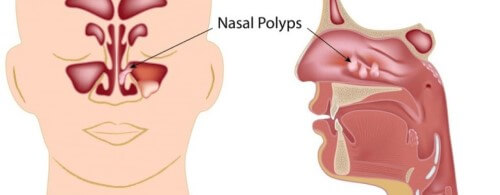Choosing the Best Decongestant for Nose Congestion
Nose congestion, commonly referred to as a blocked or stuffy nose, is a common yet frustrating condition that can interfere with your daily routine. Whether you’re battling a cold, allergies, or sinusitis, a blocked nose can leave you feeling tired, irritable, and struggling to breathe properly. While it’s often a temporary issue, the right decongestant can provide much-needed relief and restore your comfort.
In this guide, we’ll explore the causes of nose congestion, the different types of decongestants available, and practical tips to help you make an informed decision for managing this uncomfortable symptom.
What Causes Nose Congestion?
Nose congestion occurs when the tissues inside your nasal passages become inflamed and swollen, often due to an underlying trigger. This swelling reduces airflow and can make breathing difficult. Common causes of nose congestion include:
- Colds and flu: Viral infections like the common cold can irritate your nasal tissues, leading to inflammation and mucus build-up.
- Allergies: Seasonal allergies, such as hay fever, or year-round triggers like dust mites and pet dander, can provoke an immune response that causes nasal swelling.
- Sinus infections: When the sinuses become inflamed due to infection, the resulting mucus build-up can lead to a blocked nose.
- Irritants: Exposure to environmental irritants like cigarette smoke, pollution, or strong odours can trigger nasal congestion.
- Structural issues: Conditions such as a deviated septum or nasal polyps can contribute to chronic congestion.
Understanding the root cause of your nose congestion is crucial for choosing the right treatment and avoiding prolonged discomfort.
How Do Decongestants Work?
Decongestants are medications designed to relieve nose congestion by targeting the swelling in your nasal passages. They work by shrinking the blood vessels in your nasal tissues, reducing inflammation and allowing air to flow more freely. While they don’t cure the underlying cause, they can provide significant symptom relief.
Types of Decongestants
There are several types of decongestants available, each with its own benefits and considerations. Knowing the differences can help you choose the most effective option for your situation.
1. Nasal Sprays
Nasal sprays are among the most popular decongestants due to their ability to deliver targeted, fast-acting relief. They work directly on the nasal tissues, reducing swelling almost immediately.
Common options include:
- Oxymetazoline: A medicated spray that provides rapid relief, ideal for short-term use (no more than three consecutive days to avoid rebound congestion).
- Saline sprays: A non-medicated option that uses saltwater to cleanse and moisturise nasal passages. These sprays are safe for long-term use and can be especially helpful for clearing mucus and soothing irritation.
Pros: Immediate relief, easy to apply, suitable for localised symptoms.
Cons: Overuse of medicated sprays can lead to dependency or worsen symptoms.
2. Oral Decongestants
Oral decongestants, such as pseudoephedrine, work systemically by reducing blood flow to swollen nasal tissues. They are available in tablet, capsule, or liquid form and can provide longer-lasting relief than nasal sprays.
Pros: Long-lasting effects, effective for generalised nasal and sinus congestion.
Cons: May cause side effects such as insomnia, increased heart rate, or nervousness. Oral decongestants are not suitable for everyone, especially those with conditions like high blood pressure or heart problems.
3. Combination Medications
Some decongestants are combined with antihistamines or pain relievers, offering a multi-symptom approach. These are particularly useful for conditions like allergies or colds that involve more than just nose congestion.
Pros: Addresses multiple symptoms, convenient for allergy sufferers.
Cons: May cause drowsiness or other side effects depending on the formulation.
4. Natural Remedies
If you prefer to avoid medicated options, natural remedies can help manage nose congestion. These include:
- Steam inhalation: Breathing in steam from a bowl of hot water or using a humidifier can loosen mucus and reduce nasal swelling. Adding essential oils like eucalyptus or peppermint can enhance the effect.
- Hydration: Drinking plenty of fluids helps thin mucus, making it easier to clear your nasal passages.
- Nasal rinses: Devices like neti pots use saline solutions to flush out mucus and irritants, providing relief for some individuals.
Pros: Gentle, chemical-free, and suitable for long-term use.
Cons: May not be as effective for severe or persistent congestion.
Choosing the Right Decongestant
Selecting the best decongestant depends on several factors, including the cause of your congestion, the severity of your symptoms, and your overall health. Here are some considerations to keep in mind:
- Identify the Cause
- Cold or flu: A medicated nasal spray or oral decongestant can offer quick relief.
- Allergies: A combination of an antihistamine and decongestant is often the best choice.
- Sinus infections: Saline rinses and sprays are a good first step, but severe infections may require medical treatment.
- Consider Your Lifestyle
- For immediate, short-term relief, nasal sprays are ideal.
- If you need all-day relief without frequent applications, oral decongestants may be more practical.
- Account for Health Conditions
- Individuals with conditions like hypertension, heart disease, or glaucoma should consult a healthcare provider before using decongestants.
- Check for Side Effects
- Medicated options may cause drowsiness, jitteriness, or other side effects, so it’s important to choose a formulation that suits your needs and tolerance levels.
Practical Tips for Managing Nose Congestion
In addition to using decongestants, there are several lifestyle measures you can adopt to alleviate nose congestion and promote faster recovery:
- Sleep with your head elevated: Use an extra pillow to reduce nasal swelling during the night.
- Keep your environment humid: A humidifier can prevent nasal dryness and soothe irritated tissues.
- Avoid known triggers: Steer clear of allergens, smoke, and strong odours that can worsen congestion.
- Maintain good hygiene: Regularly wash your hands to minimise the risk of infections that lead to congestion.
When to Seek Professional Help
While most cases of nose congestion resolve within a week or two, there are situations where medical advice is necessary. You should consult a healthcare professional if:
- Your symptoms persist beyond 10 days or worsen over time.
- You experience severe pain or swelling in the face, particularly around the eyes or forehead.
- There is thick, discoloured, or foul-smelling nasal discharge.
- You have a history of recurring sinus infections or chronic nasal issues.
If you’re dealing with chronic or severe nose congestion, don’t wait for it to impact your quality of life. At Harley Street ENT, we offer expert diagnosis and tailored treatment plans for a range of nasal and sinus conditions. Book a consultation today and let us help you breathe freely again.













